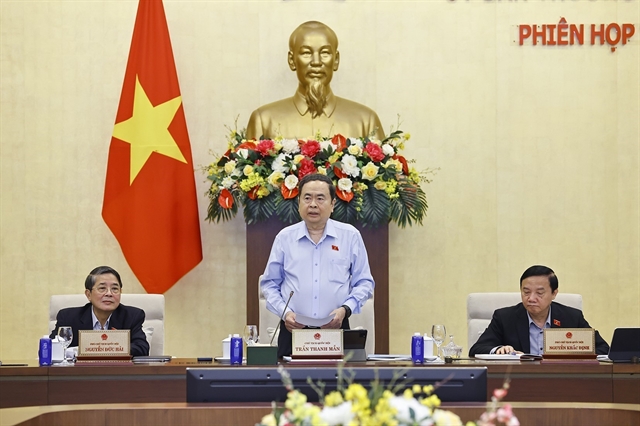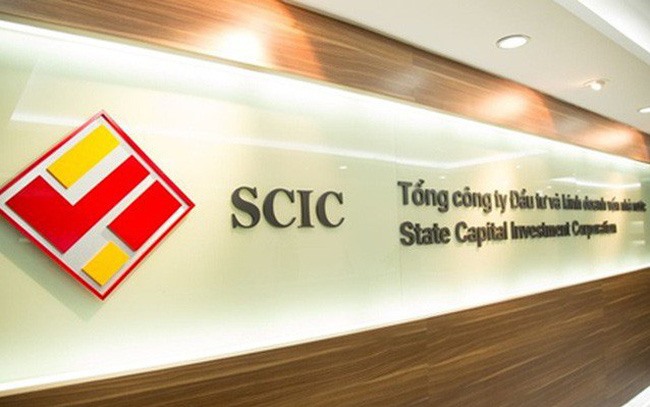 Economy
Economy

The State Capital Investment Corporation (SCIC) has made inappropriate investments that led to inefficient use of State capital, according to the State Audit of Vietnam (SAV).
 |
| The State Audit of Vietnam has released an auditing report on the State Capital Investment Corporation, which says the Government’s stake-holding representative in State-owned enterprises has made inappropriate investments in some projects that have proven inefficient. - Photo cafef.vn |
HÀ NỘI – The State Capital Investment Corporation (SCIC) has made inappropriate investments that led to inefficient use of State capital, according to the State Audit of Vietnam (SAV).
According to the State audit agency, a number of projects and joint ventures, which had been set up by SCIC and its partners in 2017 and years before, haven’t started operations.
Among the projects and joint ventures was a building in HCM City’s Tân Bình District, covering an area of 5,055 square metres. The land was assigned to SCIC in November 2009 with a 50 year term and cost the firm VNĐ110.3 billion (US$4.84 million) to obtain the land use licence.
SCIC in the same year signed an agreement with three other partners to establish the joint venture Thăng Long Investment and Services JSC to construct, manage and run the building complex.
SCIC held a 48 per cent stake of the joint venture, which had VNĐ170 billion in charter capital. Its capital was guaranteed by a part of SCIC’s land use licence on the land area.
SCIC in July 2015 signed another agreement to use its whole land use licence as guaranteed capital in the joint venture.
The construction of the building hasn’t started as the city authorities haven’t yet confirmed SCIC’s land use licence as a guaranteed asset at Thăng Long Investment and Services JSC.
“SCIC tried to use its land use licence as guaranteed capital in the joint venture, but it has failed to complete the procedures to transform the land use licence into the joint venture ownership,” the state auditor said in the report.
In addition, SCIC’s 2009 agreement to use a part of its land use licence as guaranteed asset in the joint venture is ineligible as the Law of Land 2003 only mentions the transformation of the whole land use licence into a business stake, not a part of the licence, the auditor said.
“SCIC signed an agreement in 2015 to make its ownership in the joint venture comply with regulations,” SAV added.
Plus, the land valuation was made in September 2009 and was valid for only six months. The land area was valued at VNĐ112.8 billion.
But when the agreement between SCIC and the three partners took effect in November 2011, the valuation had already expired and the stakeholders have not made another land valuation.
In May 2018, SCIC decided to re-negotiate with other shareholders of the joint venture about its guaranteed asset. The 47 per cent stake of the joint venture has been sold.
SCIC in 2007 invested VNĐ199 billion to hold a 50 per cent stake in the Financial Tower project, which was a combination between SCIC and Bảo Việt Life. In 2015, SCIC invested VNĐ49.5 billion in a project with the Vietnam Broadcasting Tower Investment JSC.
According to the State auditor, SCIC’s investment portfolio has remained inappropriate as 93.3 per cent of its earnings comes from dividend payouts made by large-cap enterprises such as dairy company Vinamilk, construction firm Vinaconex and DHG Pharmaceutical JSC.
SCIC had held the controlling stakes in those State-owned enterprises prior to November 2018 when those firms were transferred from ministries and sectors to the committee on State capital management. The committee was launched in October to monitor around US$5 billion worth of State assets in SOEs.
In its investment portfolio, 61 of the 122 SOEs did not have earnings and did not make dividend payouts for 2017 for some reasons such as they suffered losses in 2017, or their business licences were revoked. – VNS




